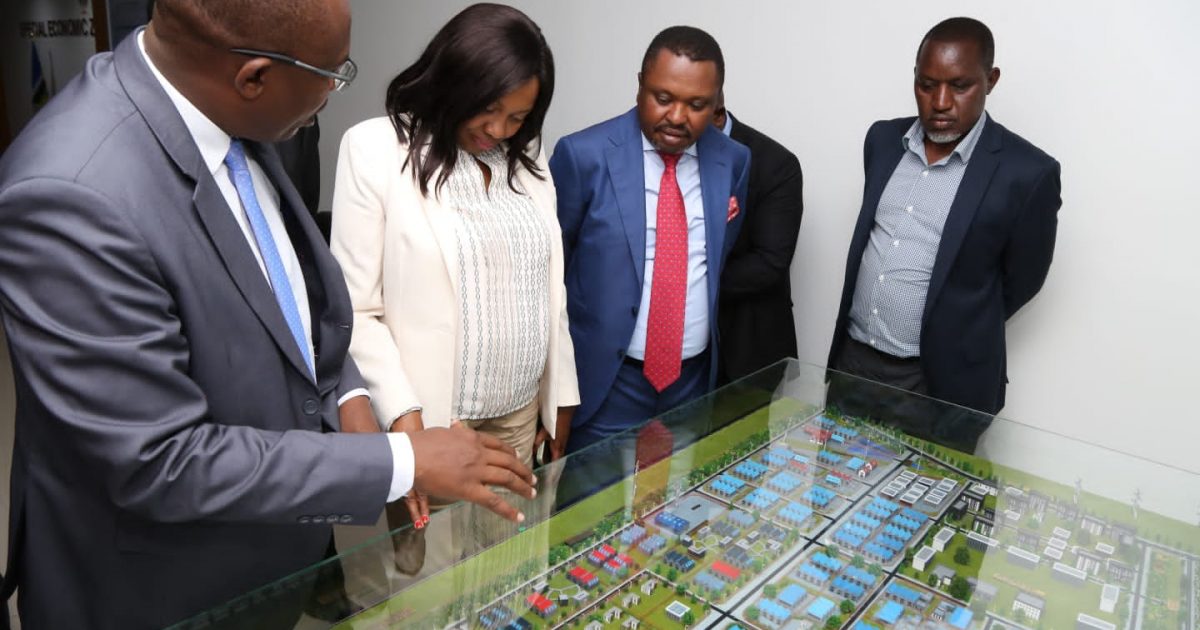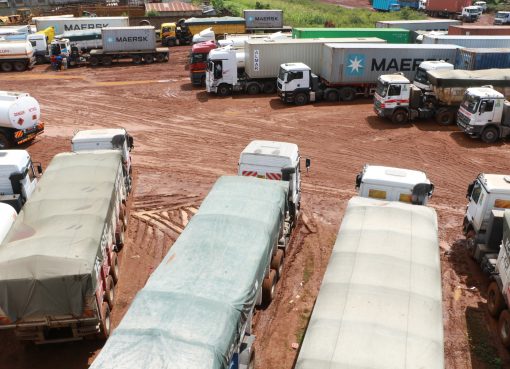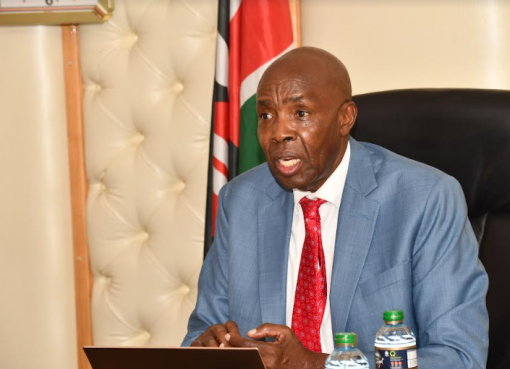The County Government of Nakuru has rolled out various initiatives to boost the region’s attractiveness to investors, starting with reforms in the tax regime through harmonisation of fees, elimination of non-tariff barriers to trade, and aggressive marketing of the Naivasha Special Economic Zone.
Governor Susan Kihika stated that her administration was reviewing a multiplicity of levies and taxes that are affecting the devolved unit’s intra-county and inter-county trade, thereby discouraging investments while raising prices for the end consumer.
Ms. Kihika further noted that the County Government has funded the construction of the Sh154 million state-of-the-art hospital and is also building other infrastructure at a cost of over Shs 2 billion, including roads, drainages, and water supply systems that will serve the Mai-Mahiu-based Special Economic Zone (SEZ).
She disclosed the formation of a technical team of representatives from her administration and the Special Economic Zone Authority (SEZA) to guide investments in and marketing of the Naivasha SEZ, which has already attracted 11 investors who have expressed interest in injecting more than Shs 50 billion to develop industries in the area.
The Governor observed that at least 75 per cent of the zone space has so far been occupied, and the technical team will assist SEZA in accelerating activities to enhance operationalization.
Speaking to members of the press in her office, the Governor indicated that she had led a delegation from the devolved unit in holding deliberations with SEZA Chairman Mr. Fred Muteti and Chief Executive Officer Mr. Kenneth Chelule aimed at positioning Nakuru as an attractive investment destination in a bid to tap foreign direct investment (FDI).
The SEZ Authority has already signed lease agreements with the investors and issued letters of offer to two others to set up industries in the zone.
According to the Governor, Nakuru, regarded as a key food basket in Rift Valley, also seeks to lure investors to its vibrant agricultural sector to add value to its products and gain direct sales of its farm produce to foreign markets, including East African countries.
The county is one of the leading producers of potatoes, carrots, milk, and vegetables, among other crops.
The county noted, the governor was further committed to averting situations where businesses incur costs for multiple permits and licenses over and above the single business permit.
“We are taking deliberate steps to reduce the cost of doing business and position Nakuru as an essential destination for local and foreign investments. As a county government, we are committed to actively pursuing interventions that will make Nakuru the economic powerhouse of the region, thereby making it the destination of choice where trade and investment thrive,” said the governor.
The multi-billion-shilling zone was set up by the government as a Special Economic Zone on a 1,000-acre piece of land to drive the country’s industrialization agenda.
Last month, President William Ruto inaugurated a power plant that will serve the Naivasha Special Economic Zone and issued licenses to six investors—local and foreign—who will inject Shs 24 billion into the project.
The investors are expected to create 2,486 jobs in various sectors, including bottling, automobiles, power, steel mills, and pharmaceuticals, among others.
Ms. Kihika noted that by equipping the Naivasha Special Economic Zone with clean energy and essential infrastructure, the facility will attract foreign direct investments, drive growth, and enhance exports.
The 90 MVA Naivasha SEZ power plant will have a Substation at Mai-Mahiu, which will supply power to industries in the zone at a reduced tariff at a rate of Sh5 per unit which will drastically cut the cost of production.
The Shs 1 billion water project in Naivasha, funded by the National and County Government is expected to pump at least 8 million litres of water daily to the SEZ.
Ms. Kihika described the economic hub as a game changer that will make Naivasha a major industrial hub in Kenya and East Africa.
“Investors will pay a corporate tax of 10 per cent for the first ten years of operation, 15 per cent for the next ten years, and 30 per cent thereafter. We encourage local investors including Small and Medium Enterprises (SMEs) to take advantage of this opportunity and apply for space at the SEZ through the Department of Trade,” she noted.
The Governor indicated that the county had identified its trade and investment prospects, adding that it was pursuing active partnerships to unlock its potential and that businesses in the SEZ will enjoy cheaper geothermal power to run their operations and lower taxes.
“We pledge to offer full support in the belief that it is only through Public-Private Partnerships, value addition, trade, and investments that we will achieve the objective of transforming Nakuru into a middle-income economy,” she added.
The Governor stated that attracting and retaining investments entailed businesses partnering with the county government to enhance development through building infrastructure, restoration of natural resources, and offering productive jobs to raise the living standards for every resident throughout the devolved unit.
Governor Kihika pledged that, towards transforming Nakuru into a more economically vibrant city that will rival Nairobi, her management is embracing smart master planning.
This, she added, involves properly designating outlying areas for new industrial locations, residential estates for both the upper and middle classes and other institutions, and the provision of supporting infrastructure.
Ms. Kihika disclosed that the Special Economic Zone is expected to create over 3,000 jobs directly and 30,000 others indirectly, adding that the factories will export 70 per cent of their output and earn the country Shs 42 billion in foreign exchange each year boosting Kenya’s economy.
Some of the investors setting up shop at the Naivasha SEZ include Motors SEZ Limited, which will assemble automobiles, Jumbo AAA Limited, Jafro SEZ, Turkish Industry Holdings, Sino Excellence, and Erikken MFG Limited.
The Governor further indicated that the global investments will help Kenya gain a foreign exchange advantage by exporting locally manufactured finished products to the global market.
Kenya has 15 gazetted SEZs, which form part of the ambitious plans to create thousands of jobs and boost exports to spur economic growth by 2030.
Kenya introduced a pilot tariff of Sh5 per kWh for the Olkaria-Kedong SEZ in Naivasha four years ago as it sought to determine how to price electricity in a bid to lure investors.
The tariff is the lowest rate per unit of power across all the consumption bands under the new regime, highlighting the State’s resolve to improve the investor climate in the face of increasing competition from countries that offer investors cheap electricity.
SEZs are designated areas aimed at promoting and facilitating export-oriented investments in a bid to boost inflows.
The zones are spread across Naivasha, Mombasa, Kisumu, and Machakos, and there are plans to provide more land for the facilities.
Besides the special electricity tariffs, SEZs enjoy special taxes and infrastructure that facilitate a wide range of activities, such as storage, exports, and re-exports.
SEZs offer industrial parks, free trade zones, as well as other auxiliary services such as tourism, meetings, conferencing, and exhibitions.
By Anne Mwale and Jedidah Gitau




